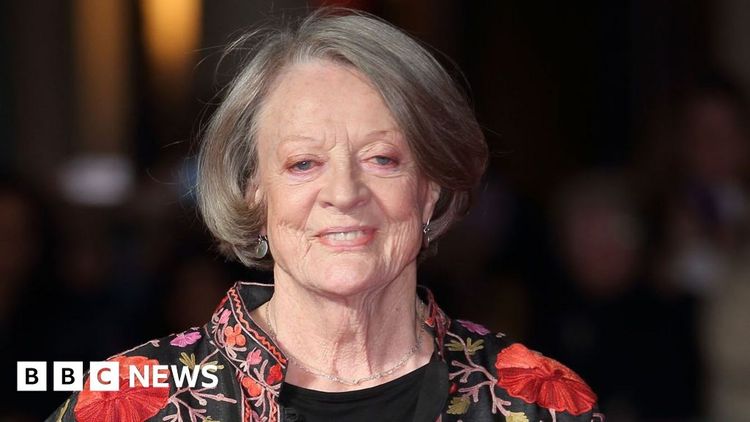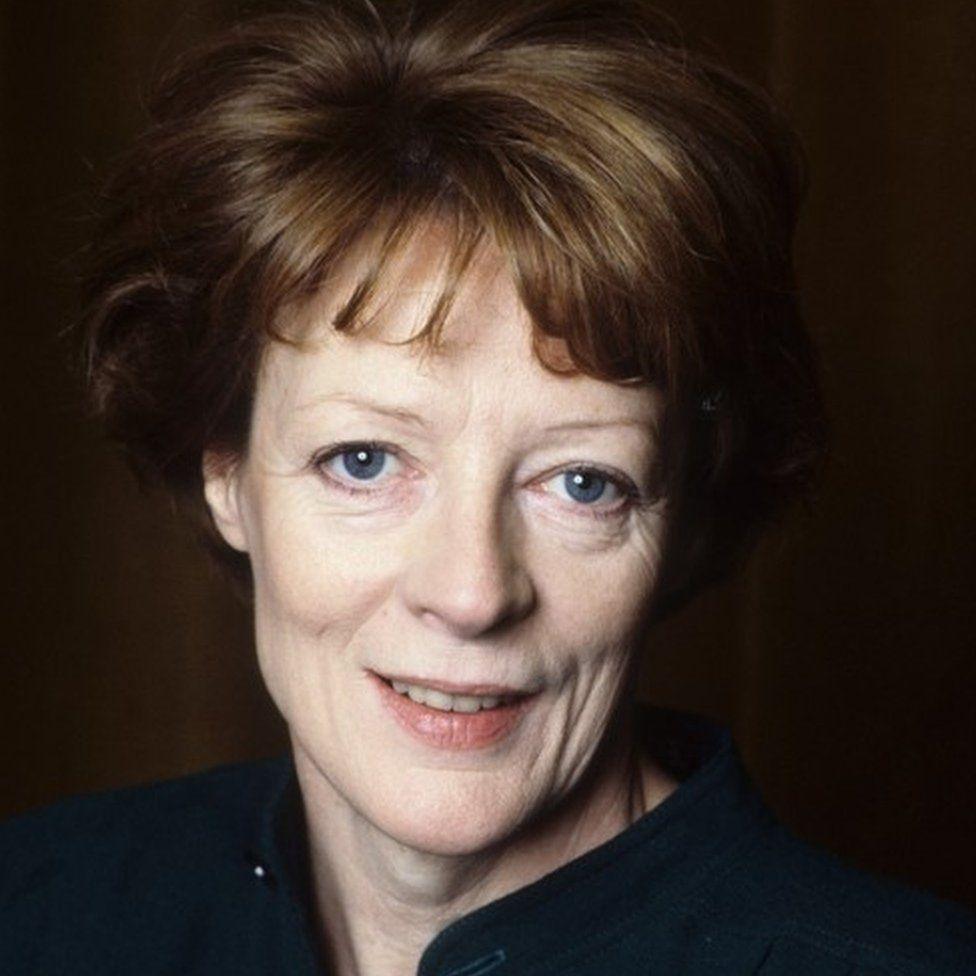Dame Maggie Smith obituary: A piercing presence on stage and screen

Dame Maggie Smith showcased an impressive variety of emotions in her performances, earning admiration from both directors and her fellow performers.

People often said she approached every role with seriousness, frequently seen walking around during rehearsals, practicing her lines even when the other actors were taking a break.
In a field known for its unpredictability, her career stood out for its lasting success.
She began her acting career in 1952 and continued to perform for sixty years, evolving from a hopeful newcomer to a beloved national icon.
Margaret Natalie Smith entered the world in Ilford, Essex, on December 28, 1934. She was the daughter of a pathologist.
As war approached, the family relocated to Oxford, and young Maggie enrolled at the Oxford School for Girls.
She began her career in theater as a prompt girl and an understudy at the Oxford Repertory. She mentioned that she never performed on stage during her time there because no one in the troupe got sick.
In 1955, her company relocated to a small theater in London, which caught the eye of American producer Leonard Stillman. He selected her for a role in "New Faces," a revue that debuted on Broadway in June 1956.
By the mid-1960s, she had become a well-known performer in theater.
She distinguished herself from the group of lesser-known actors, and when she came back to London, she received a six-month opportunity to perform in the revue Share My Lettuce alongside Kenneth Williams.
Her debut in film came with an uncredited role in the 1956 movie "Child in the House."
Two years later, she received a Bafta nomination for Best Newcomer for her role in the 1958 melodrama "Nowhere to Go," where she portrayed a young woman who hides an escaped prisoner.
The Times referred to her as "the lifesaver of this lighthearted Broadway comedy" while discussing her performance in the popular London production of Mary Mary in 1963.
She almost overshadowed Richard Burton in the movie The VIPs when she took part in a关键 scene alongside the Welsh actor.
A reviewer pointed out that "the film comes to life when Maggie Smith appears," and Burton later jokingly referred to her taking the spotlight from him as "theft on a grand scale."
In late 1963, Laurence Olivier cast her as Desdemona alongside his portrayal of Othello at the National Theatre. Two years later, the original cast performed in a film adaptation of the production, earning Smith an Academy Award nomination for her role.
The performance that earned her worldwide recognition occurred in 1969 when she portrayed the fiercely unconventional teacher in The Prime of Miss Jean Brodie.
Photo credit: Getty Images
Her performance in the role of Jean Brodie, alongside her soon-to-be husband Robert Stephens, earned her an Academy Award.
The role earned her an Academy Award for Best Actress.
She also tied the knot with her fellow actor Robert Stephens.
The actress remained at the National Theatre for an additional two years, during which she performed as Mrs. Sullen in the Restoration comedy The Beaux' Stratagem in Los Angeles.
In 1972, she earned another Oscar nomination for best actress for her role as Aunt Augusta in the George Cukor movie, Travels With My Aunt.
She and Stephens finalized their divorce in 1975, and the following year, she married playwright Beverley Cross. She then relocated to Canada, where she spent four years with a repertory theater company, taking on more challenging roles in productions of Macbeth and Richard III.
One reviewer, commenting on her portrayal of Lady Macbeth, concluded that she had successfully blended her distinctive character with that of the compelling role she was playing.
Even with her accomplishments, she remained humble about what she had achieved. She put it quite simply: "I went to school, I wanted to be an actor, I began acting, and here I am, still acting."
She kept acting in films, starring alongside Peter Ustinov in the 1978 movie, *Death on the Nile*, and later that year, she took on the role of Diana Barrie in Neil Simon's *California Suite*.
She received widespread praise for her portrayal of Betsey Trotwood in a BBC version of David Copperfield.
The 1980s featured many unforgettable performances in film, along with several accolades, including BAFTA awards for "A Private Function" and "A Room with a View." The latter also earned her a Golden Globe and a nomination for an Oscar.
She received additional Bafta awards, first for her role as the aging alcoholic in *The Lonely Passion of Judith Hearne* and later for her performance in *Bed Among The Lentils*, which was part of Alan Bennett's *Talking Heads* series for the BBC.
In 1987, she returned to the stage in the play "Lettice and Lovage" at the Globe Theatre in London, which later moved to New York. However, her time in the production was cut short when she had a bicycle accident and discovered she would require eye surgery.
After taking a year off, she returned to work on Lettice and Lovage, and her performance in New York earned her a Tony Award.
In 1990, she was appointed a Dame Commander of the Order of the British Empire (DBE), and the following year, she took on the role of the older Wendy in "Hook," Stephen Spielberg's continuation of the Peter Pan story.
She went on to star in several other movies, including Sister Act with Whoopi Goldberg and The Secret Garden, which earned her a BAFTA nomination.
The new century saw her receiving a Bafta and an Emmy nomination for her performance as Betsey Trotwood in the BBC adaptation of David Copperfield.
A year later, she took on the role of Professor McGonagall in Harry Potter and the Philosopher's Stone, a character she would play again in all the following films in the series.
Photo credit: Ronald Grant
Her involvement in the Harry Potter series introduced her to a fresh audience of movie lovers.
According to reports, she was the only actor that JK Rowling personally requested, adding a hint of Miss Jean Brodie's charm to Hogwarts.
In 2004, she starred alongside her longtime friend and fellow actress Judi Dench in the heartfelt drama *Ladies in Lavender*.
The New York Times remarked that Smith and Dench embrace their characters as contentedly as house cats snuggling into a soft blanket on a stormy, rainy evening.
Two years later, she portrayed the financially struggling Countess of Trentham in "Gosford Park," a film by Robert Altman that offers a unique perspective on the classic English country house murder mystery.
Her performance was a joy to watch, showcasing a subtle air of superiority that perfectly set the stage for her sharp, witty comebacks—especially when it came to Mr. Novello's unsuccessful film.
She essentially played a similar character when she joined the cast of the ITV drama, Downton Abbey. Although her character's name changed to the Dowager Countess of Grantham, her portrayal was fundamentally the same.
"I really can't stand foolishness, and it seems like fools can't stand me either, which gives me a bit of an edge," she once remarked. "Perhaps that's why I excel in portraying sharp-tongued older women."
She stayed with the Downton Abbey cast until 2015 when the show concluded, later returning to her character for two movies released in 2019 and 2022.
In 2007, during the production of Harry Potter and The Half-Blood Prince, she was diagnosed with breast cancer. After undergoing two years of treatment, she was declared cancer-free.
Even though she felt weak due to her illness, she went on to appear in the last Harry Potter movie and earned a BAFTA nomination for her performance in the 2012 film, The Best Exotic Marigold Hotel.
In 2015, she delivered an emotional portrayal in the movie The Lady in the Van, which tells the real story of Mary Shepherd, an older woman who resided in a rundown van parked in the driveway of writer Alan Bennett in London for 15 years.
She had acted in the stage adaptation of the story before, earning an Olivier award for Best Actress, and she also participated in a BBC Radio 4 version of Bennett's play in 2009.
Dame Maggie rarely gave interviews, but during one occasion, she was asked what she found fascinating about acting. She responded, "I appreciate the fleeting nature of theater; each performance is like a specter – it exists for a moment and then vanishes."









































